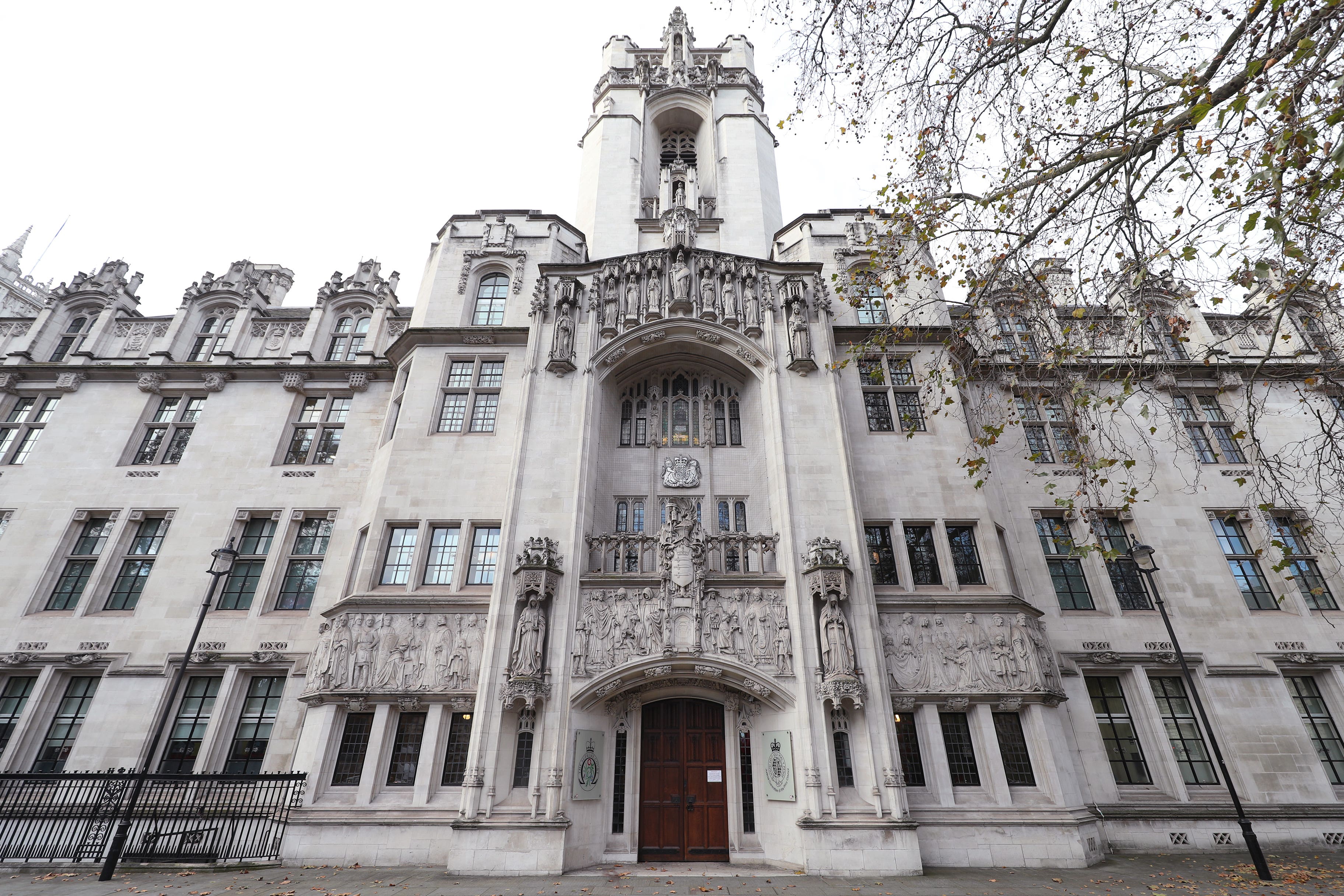Promises over treatment of asylum seekers in Rwanda ‘aspirational’, court told
Lawyers for the UNHCR, the UN refugee agency, made their legal arguments on Tuesday.

Promises over the treatment of asylum seekers removed to Rwanda are “aspirational”, the United Nations refugee agency has told the Supreme Court.
The Home Office is challenging a June Court of Appeal ruling that the UK’s multimillion-pound deal with Rwanda over the processing of asylum claims was unlawful.
The Government has previously argued that a memorandum of understanding agreed between the two countries provides assurances that ensure everyone sent there will have a “safe and effective” refugee status determination procedure.
Other assurances include that people deported to Rwanda will be provided with “adequate accommodation”, food, free medical assistance, education, language and professional development training and “integration programmes”, judges were told at previous hearings.
However, Angus McCullough KC, for the UNHCR, said the promises were “no sufficient answer” to “basic and fundamental defects” in the Rwandan system.
He said in written submissions: “The assurances and commitments given by the government of Rwanda do not suffice to establish an accessible, reliable or fair asylum system in Rwanda.
“UNHCR in any event considers the assurances given in this case insufficient.
“The assurances are aspirational in nature, particularly in relation to such matters as ‘appropriately trained’ decision-makers and ‘objective and impartial’ decisions.”
Five justices at the London court were told that asylum seekers transferred to Rwanda under a previous arrangement with Israel were “routinely and clandestinely expelled”, prevented from making asylum claims and faced “grossly intimidating treatment”.
Issues have also been raised about the consequences for anyone who shows dissent against the Rwandan authorities, with the country described as an “authoritarian, one-party state” by a barrister for the asylum seekers in the claim.
Mr McCullough later said in written submissions: “The Home Office’s response to the evidence of inadequacies and failures in the system is to assert that, in light of the assurances, evidence of past problems is ‘at best, peripherally relevant’… That approach has no basis in principle or in the evidence.”
At the start of the three-day hearing on Monday, Sir James Eadie KC, for the Home Office, told the UK’s highest court that the policy to remove people to “a country less attractive” than the UK, “but nevertheless safe”, is lawful.
The barrister said both countries are “committed” to the deal, with “very powerful” practical incentives for Rwanda to comply with assurances that asylum seekers there would be protected from ill-treatment.
“The appeal is, at its heart, about the judgments made by Government about the future conduct of a friendly foreign state – Rwanda,” Sir James said.
Sir James said that asylum seekers’ rights of review and appeal were “embedded” in the deal with Rwanda, which also “guaranteed” access to legal support.
In written arguments, he added that transfers to the east African nation “will take place only with the consent of the Rwandan authorities and numbers will, in the first instance, be low”.
The barrister later said both the British and Rwandan governments “were fully aware of the likely controversy of the arrangements” when the deal was made.
The hearing before Lords Reed, Hodge, Lloyd-Jones, Briggs and Sales is due to end on Wednesday, with a judgment expected at a later date.
Subscribe to Independent Premium to bookmark this article
Want to bookmark your favourite articles and stories to read or reference later? Start your Independent Premium subscription today.
